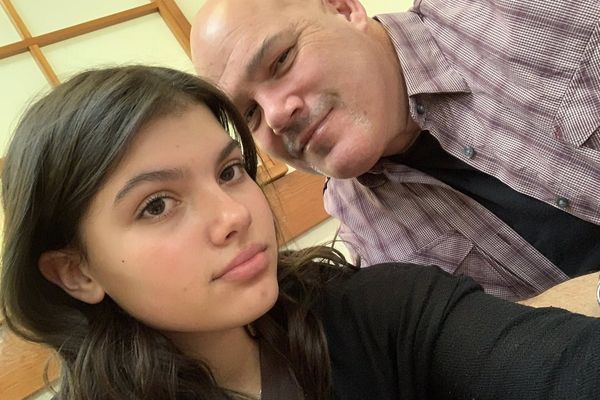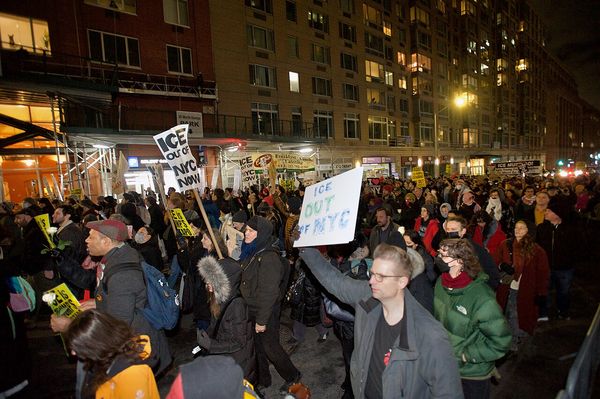
Two Saudi sisters found dead in their beds in Sydney attended a girls-only queer event in January where they told acquaintances gay women “live in fear” in Saudi Arabia.
The Guardian understands New South Wales police are investigating whether one or both of the sisters may have feared being persecuted for their sexuality in their homeland, which they fled together in 2017 for Australia, where they made claims for asylum.
The bodies of Asra Abdullah Alsehli, 24, and Amaal Abdullah Alsehli, 23, were found in their beds in their apartment in Canterbury on 7 June. The women had been dead for more than a month when they were found, police say.
There were no signs of injury to the women’s bodies or forced entry to the apartment, and police have conceded they have not been able to determine the cause of their deaths.
The sisters reportedly led reclusive lives, having few friends and contacts in Australia, but a woman has come forward to say she met them at a girls-only queer event earlier this year.
The woman, who spoke on condition of anonymity, told the Guardian the sisters were “keeping to themselves” at the party and told her queer people faced oppression in Saudi Arabia.
“I noticed them keeping to themselves in a corner, looking shy and so I went over and started talking to them,” she said.
“They mentioned that they were from Saudi Arabia, and we talked about what it is like to be queer there. They said women live in fear of their safety and that they were grateful to be living in Australia, where they could more freely express themselves.”
The women – who had active claims for protection with the Department of Home Affairs in Australia – spoke openly about women’s rights, including women having greater independence in Australia.
But the sisters were reluctant to talk in detail about their home country.
“I asked about their lives in Saudi Arabia and whether they had returned home recently to visit family but they seemed reluctant to go into detail and gave short answers,” the woman said.
“I got the impression that they very rarely go out and hadn’t explored much of Sydney.
“What’s terribly sad is they told me they were excited to be out at an event like this and that they were ready to start exploring more of Sydney. They should have been safe in Australia,” she added.
The woman said she contacted police as soon as she saw a photo of the sisters in the media.
“The police were very keen to speak to me as it appears the sisters lived a very reclusive lifestyle, especially recently, and so police don’t know much about them,” she said.
She said NSW police were certain one of the sisters identified as queer.
“They did confirm to me that they knew one of the sisters was queer, but they weren’t sure about the other,” the woman said.
The woman said it was “obviously difficult” raising the issue publicly, but when she saw the news about the sisters’ deaths she felt compelled to come forward.
“We spoke about how unsafe it is for Saudi women to be openly gay and that that would put a target on their back, so I wanted to make sure that the police were aware that at least one of the sisters were openly exploring their queer sexuality.
“This information could help find out what has happened to them.”
The Guardian asked NSW police about its lines of inquiry regarding the women’s deaths. A spokesperson said: “As the investigation is ongoing, police continue to appeal for information in relation to the death of the two women.
Police refused to confirm media reports that the women had died of suicide, and that “bottles of chemicals” were found near their bodies.
A spokesperson for NSW Police said “no further information is available at this stage” when asked if this was a line of inquiry, adding that the investigation was ongoing.
Police have previously confirmed they have been in contact with the sisters’ family in Saudi Arabia, and that they were cooperating and were not considered suspects.
The two sisters were asylum seekers in Australia: each had engaged with settlement services providers in Sydney.
The nature of their claim for asylum is not known.
Guardian Australia has spoken with an advocate who has worked with Saudi asylum seekers in Australia who said it was not a surprise the sisters felt they needed to flee Saudi Arabia because of their sexuality.
“A significant number of people in the Saudi asylum community here fled because of their sexual orientation and because of the persecution they suffered or knew they would suffer if they disclosed their sexual preference,” they said.
About 75 Saudi women have been granted permanent protection visas in Australia in the past five years.
A previous landlord told the Guardian that the women’s mother had visited them sometime between 2017 and 2019.
The landlord said the sisters “kept to themselves”, had very few friends apart from a boyfriend for one of the sisters, and that they would “only leave for Tafe, shopping or work”. Both sisters worked in traffic control for a construction company.
The older sister, Asra, had also applied for an apprehended violence order in January 2019 against a man, although that application was withdrawn.
The Human Rights Watch World Report for 2022 said while Saudi Arabia had no written laws concerning sexual orientation or gender identity, “judges use principles of uncodified Islamic law to sanction people suspected of committing sexual relations outside marriage, including … same-sex relations”.
“If individuals are engaging in such relationships online, judges and prosecutors utilise vague provisions of the country’s anti-cybercrime law that criminalise online activity impinging on “public order, religious values, public morals, and privacy”.
The two-bedroom apartment where the sisters’ bodies were found on 7 June has been placed back on the rental market for $520 a week. The advertisement for the property carries the disclaimer: “This property has found two deceased person on 07/06/2022, crime scene has been established and it is still under police investigation. According to the police, this is not a random crime and will not be a potential risk for the community.”







